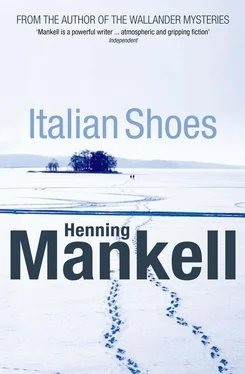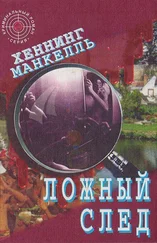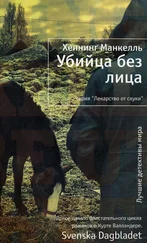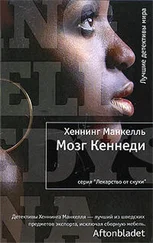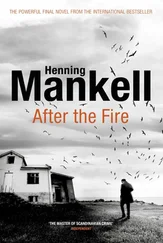‘That’s the way she is,’ said Louise. ‘That’s my mother for you.’
We left through the A&E entrance.
‘I know what she’s like,’ said Louise. ‘I also know where she is. We have an agreement that we made when I was a little girl. The nearest cafe, that’s where we’ll meet. If we ever get separated.’
We walked round the hospital to the main entrance. There was a cafe area in the big foyer.
Harriet was sitting at a table with a cup of coffee. She waved when she saw us coming. She appeared almost cheerful.
‘We still don’t know what’s wrong with you,’ I said sternly. ‘The doctors ought to have been given an opportunity to check the samples they’ve taken.’
‘I’ve got cancer,’ said Harriet, ‘and I’m going to die. Time is too short for me to lie around in hospital and start panicking. I don’t know what happened yesterday. I expect I drank too much. I want to go home now.’
‘To my place, or to Stockholm?’
Harriet took hold of Louise’s arm and pulled herself up. Her walker was standing by a newspaper stall. She grasped at the handles with her frail fingers. It was impossible to understand how she had managed to pull me out of the forest pool.
When we got back to the caravan, all three of us lay down on the narrow bed. I lay on the outside with one knee on the floor, and soon fell asleep.
In my dreams, Jansson approached me in his hydrocopter. It carved its way towards me like a sharp saw cutting through ice. I hid behind a rock until he had gone away. When I stood up I saw Harriet standing on the ice with the wheeled walker. She was naked. Next to her was a large hole in the ice.
I woke up with a start. The two women were asleep. I thought of grabbing my jacket and getting out of there. But I stayed put. Soon, I fell asleep again.
We all woke up at the same time. It was one o’clock. I went outside for a pee. It had stopped snowing and the clouds had started to part.
We drank coffee. Harriet asked me to take her blood pressure as she had a headache. It was only slightly above normal. Louise wanted me to take her blood pressure as well.
‘One of my first memories of my father will be that he took my blood pressure,’ she said. ‘First the buckets of water, and now this.’
It was very low. I asked if she sometimes had bouts of dizziness.
‘Only when I’m drunk.’
‘Never on other occasions?’
‘I’ve never fainted in my life.’
I put my blood pressure monitor away. We had finished the coffee, and it was a quarter past two. It was warm inside the caravan. Perhaps too warm? Was it the stifling air, short of oxygen, that caused them to lose their tempers? But whatever the cause, I was suddenly attacked from two sides. It started with Harriet asking me what it felt like, having a daughter, now that I’d known about it for a few days.
‘What does it feel like? I don’t think I can answer that one.’
‘Your indifference is frightening,’ she said.
‘You know nothing about how I’m feeling,’ I said.
‘I know you.’
‘We haven’t met for nearly forty years! I’m not the same as I was then.’
‘You’re too cowardly to admit that what I say is true. You didn’t have the courage then to say that you wanted us to stop seeing each other. You ran away then, and you’re running away now. Can’t you bring yourself to tell the truth just once? Is there no truth in you at all?’
Before I had chance to say anything, Louise chipped in that a man who had abandoned Harriet in the way I had done could hardly be expected to react to an unexpected child with anything but indifference, perhaps fear, and at most with a bit of curiosity.
‘I can’t go along with that,’ I said. ‘I’ve apologised for what I did, and I couldn’t have known anything about a child because you never told me.’
‘How could I tell you when you’d run away?’
‘In the car on the way to the forest pool, you said you’d never tried to find me.’
‘Are you accusing a dying person of lying?’
‘I’m not accusing anybody.’
‘Tell it as it is!’ yelled Louise. ‘Answer her question!’
‘What question?’
‘Why you’re indifferent.’
‘I’m not indifferent. I’m pleased.’
‘I see no sign of pleasure in you.’
‘There’s not enough room in this caravan to dance on the table! If that’s what you’d like me to do.’
‘Don’t think for one moment I’m doing this for you,’ screeched Harriet. ‘I’m doing it for her sake.’
We yelled and shouted. The walls of the cramped caravan came close to collapsing. Deep down, of course, I knew that what they were saying was true. I had let Harriet down, and perhaps I hadn’t displayed enough ebullient happiness on meeting my daughter. Nevertheless, this was too much. I couldn’t take it. I don’t know how long we carried on with this pointless shouting and sparring. On several occasions I expected Louise to clench her boxer’s fists and give me a telling punch. I daren’t even begin to think about what level Harriet’s blood pressure reached. In the end I stood up, grabbed my bag and my jacket and shoes.
‘Go to hell, the pair of you!’ I yelled as I stormed out of the caravan.
Louise didn’t follow me out. Neither of them said a word. Everything was silent. I walked down to the car in my stockinged feet, got in and drove off. Not until I came to the main road did I stop, remove my soaking wet socks and put on my shoes over my bare feet.
I was still upset about the accusations. During the journey the exchanges came back to me in my head, over and over again. I sometimes changed what I had said, made my responses clearer, sharper. But what they had said was the same all the time.
I reached Stockholm in the middle of the night, having driven far too quickly; I slept in the car for a while until it became too cold, then continued as far as Södertälje. I hadn’t the strength to drive any further. I checked into a motel, and fell asleep the moment my head touched the pillow. At about one the next day I continued my journey south, having telephoned Jansson and left a message on his answering machine: could he collect me at half past five? I wasn’t sure how he felt about driving in the dark. I crossed my fingers and hoped he would check his messages and had some decent headlights on his hydrocopter.
Jansson was waiting when I arrived at the harbour. He told me he had been feeding the animals every day. I thanked him and said I was in a hurry to get home.
When we arrived, Jansson refused to accept any payment.
‘I can’t take a fare from my doctor.’
‘I’m not your doctor. We can settle up the next time you come.’
I remained standing on the jetty until he had disappeared behind the rocks and the lights had faded away. I suddenly noticed that my cat and my dog were sitting next to me on the jetty. I bent down to stroke them. The dog seemed to be thinner than he had been. I left my rucksack on the jetty, I was too tired to see to it.
There were three of us on this island, just as there had been three of us in the caravan. But nobody would be launching an attack on me here. It was a relief to enter my own kitchen again. I fed the animals, sat down at the kitchen table and closed my eyes.
I had difficulty in sleeping that night. I got out of bed again and again. It was full moon, the sky was clear. The moonlight oozed over the rocks and the white ice. I put on my boots and fur coat and went down to the jetty. The dog didn’t notice that I had gone out, and the cat opened an eye but didn’t stir from the sofa. It was cold outside. My suitcase had somehow burst open, shirts and socks had fallen out. For the second time, I left it to its fate.
It was while I was standing there on the jetty that I realised I had another journey to make. For twelve years I had succeeded in convincing myself that it wasn’t necessary, but the meeting with Louise and our long nocturnal conversation had changed all that. I was obliged to undertake this new journey. And I now wanted to do it.
Читать дальше
